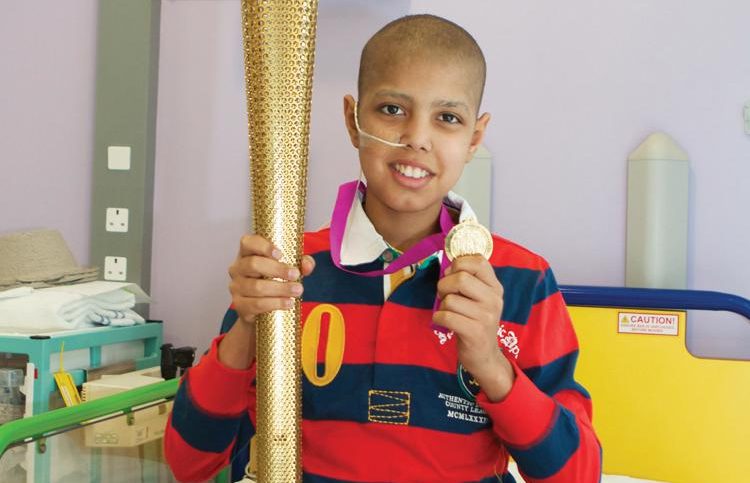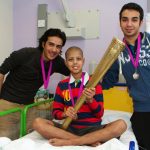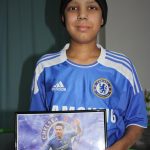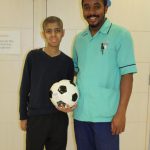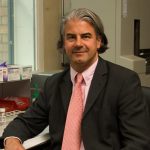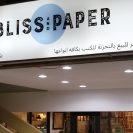By Great Ormond Street Hospital
Ahmed was an active little boy who enjoyed playing football, taking the centre forward position in his school football team. At the beginning of 2012, Ahmed started to feel more tired than usual, and found he was having difficulty moving and keeping his energy up. He developed a fever and swollen tonsils, and was eventually taken to his local hospital in Kuwait. At first, doctors thought he might have an underactive thyroid, but further tests revealed the devastating news that he had leukaemia. A low dose of chemotherapy was immediately started while Ahmed waited for arrangements to be made for his transfer to Great Ormond Street Hospital (GOSH).
Great Ormond Street Hospital, one of the world’s leading centres for treating sick children in London, is recognised as one of the few truly world-class hospitals for children. As a global leader, GOSH has top clinical and research experts working every day to find new and better ways to treat children. While breakthroughs and medical expertise are essential to the treatment of patients, GOSH also places great emphasis on the support and care provided for children by nurturing an open and supportive atmosphere, ensuring that both parents and patients are well-informed and closely involved in the treatment process. Children receive the highest standards of care and attention from the expert team of medical and support staff during their stay at GOSH and are always treated with respect, trust, concern and openness.
Ahmed arrived at GOSH as a brave young boy facing a difficult journey ahead of him. He started chemotherapy again straight away, but unfortunately subsequent tests showed that the cancer was resistant to the treatment and therefore the disease was not abating. The decision was taken for Ahmed to undergo a bone marrow transplant, which would mean finding a suitable donor who could provide matching healthy bone marrow stem cells to replace Ahmed’s damaged bone marrow. Luckily, a suitable match was found quickly and Ahmed started treatment in July. The treatment consisted of high dose chemotherapy drugs which wiped out the functioning bone marrow, including the blood stem cells within the bone marrow, in order to eradicate the underlying disease. The donor’s bone marrow was then transplanted into Ahmed, replacing all his unhealthy cells with healthy cells.
Ahmed said: “I like all the nurses and the patient advocates; they are friendly and make me laugh. Everyone’s been nice to me here, but I miss my family, especially my brother Mohammed. While he was visiting me here we used to walk down to the London Eye, and I took pictures of Big Ben. I think I will want to come back to London when I am older.
“In the hospital I’ve made friends with another boy on the ward and my nurse, Michael, who plays football with me in my hospital room. He’s helping me to train so that when I return to Kuwait, I can rejoin my school sports club and start playing football again.”
Claudia Tomlin Butterfly, Ward Manager, said: “Rehabilitation is equally as important to patients as treatment. We try to maintain normality where possible for all patients, which helps their recovery and keeps them in touch with activities they like doing. In Ahmed’s case, he loved football, so it was important that Ahmed was able to kick and play around with a ball on the ward. He would never have been allowed to play football outside as it would have meant mixing with too many members of the public and would have put Ahmed at risk of catching an infection.”
Ahmed is a keen footballer and is a dedicated supporter of Chelsea football club, who are the current European champions and one of the leading clubs in England and in Europe. “My favourite player at Chelsea is the number 9 central striker Fernando Torres; he scores lots of goals like me when I play back in Kuwait”.
Chelsea and England footballer Frank Lampard sent Ahmed a signed photo, with a ‘get well’ message for him. Ahmed was thrilled to receive the signed photo and expressed his gratitude for having a ‘get well soon’ message from one of his football heroes. The photo now takes pride of place in his room with his Chelsea shirt, which he tries to wear every day.
At GOSH, great importance is placed on play and education as part of the overall treatment and care given to the children. Play areas can be found on each ward and these, along with the hospital’s own school, are essential components of the hospital’s facilities. Ahmed said: “I especially like the playrooms here – my favourite toys are the remote-controlled cars. The teacher from the hospital school comes up to my room to help me with my schoolwork sometimes.” Hospital school teacher Alice Dehl describes Ahmed as a “polite and friendly student who is keen to learn even when he is feeling unwell.”
Not only so, GOSH is renowned for celebrating annual festivals and birthdays, and important national occasions such as the Olympic games which were held in London in the summer of 2012. The hospital held its own GOSH games to celebrate the Olympics, and patients and their families got to hold the Olympic torch as well as participate in the games. Ahmed said: “I watched the Olympic games on TV and liked all the sports, everything was great. I was really excited to be able to hold the Olympic Torch. I think I will remember that forever!”
Befitting the spirit of togetherness and harmony that marks Eid celebrations, GOSH celebrates Eid al-Fitr and Eid Al Adha every year with patients and their families. The wards are filled with decorations, as the children celebrate together with hospital staff. However, during the celebrations Ahmed had to be kept in isolation in order to protect him from contracting infections from other people and the general environment. His treatment supressed his immune system; being immunosuppressed can make patients extremely susceptible to infections of all types. “During Eid celebrations I was in isolation, because I’d just had the bone marrow transplant so was unfortunately unable to join in the party to mark the end of Ramadan and celebrate Eid al-Fitr on the ward, but I did receive presents, which was nice.”
Ahmed has been supported by his two brothers whilst he has been at GOSH and his older brother feels “he has received good care, and good treatment, with cooperative doctors and nurses, and he has been lucky to be in GOSH because it has given him a better chance of curing his disease.”
Paul Veys, Ahmed’s consultant, said: “We are delighted with Ahmed’s progress so far. Although he has had a prolonged hospital stay, the bone marrow transplant appears to have got rid of a difficult leukaemia. Throughout the whole transplant process Ahmed has remained positive and accepting of every treatment. It takes considerable courage to be away from friends and family, in a foreign country and unfamiliar language. Some of the medical and nursing teams share his passion for football and used to play after the ward rounds. Sadly we no longer have time to do this, but we are delighted that Ahmed manages to escape his room to keep fit in the corridors. Sometimes he’s so quickly out of his room we think he has his own secret entrance!”
Ahmed is now doing well and is expected to make a full recovery.
For more information about GOSH, and to know more about the International and Private Patients services, its latest medical news, updates and to meet the team, please visit www.gosh.com.kw.



